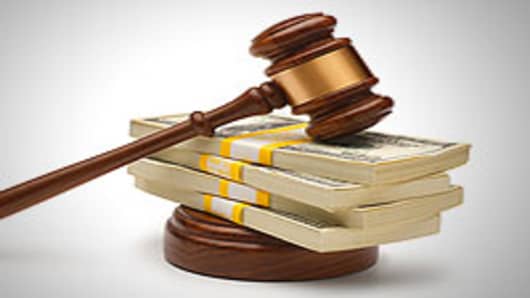When US investigators were hot on the trail of Don Ching Trang Chu, a former consultant who made a living linking hedge fund traders with corporate insiders, they say they captured him on tape explaining that he preferred to do most of his work in Asia.
Most of the “real time” information Mr Chu’s contacts provided was about publicly-traded US companies, but many of the calls and meetings allegedly took place abroad.
“I don’t want to (be) involved in the States . . . It’s dangerous. SEC (the US Securities and Exchange Commission) is too strong. In Asia, the SEC can’t do too much there . . . In Asia, there, nobody cares,” Mr Chu allegedly said, according to a criminal complaint filed against him last week. No trial date has been set.
The perception that the US takes insider trading more seriously is widely shared by traders and regulators. Although most countries have officially banned trading on non-public information for a decade or more, enforcement has been patchy or non-existent.
That is starting to change in two critical ways: some Asian and European regulators are taking a much tougher stance against insider trading in their own markets and they are co-operating with the SEC and US prosecutors to deal with cross-border violations.
Both the UK and Hong Kong have sharply stepped up their criminal prosecution of insider dealing.
Just last week, the UK Financial Services Authority charged five people connected to a specialist brokerage firm with trading ahead of merger announcements. Several of the charges involve mergers by US technology companies. People familiar with the probe said the SEC was investigating the matter as well but no US charges have been filed.
In Hong Kong, the Securities and Futures Commission has accused a New York-based hedge fund of insider dealing and taken the unprecedented step of applying for a court order to ban it from trading in Hong Kong. Tiger Asia Management contests the allegations. Last month, the SEC followed its counterpart and issued the hedge fund with a subpoena.
China this month launched its most serious crackdown on insider trading in years with a public pronouncement from the cabinet that described the situation as “grim” and vowed to rein in rampant market manipulation and insider dealing.
Japanese authorities recently began investigating the possibility of widespread insider trading after receiving complaints from investors that some funds might be using non-public information to sell or short stocks ahead of equity-raising announcements.
Atsushi Saito, president of the Tokyo Stock Exchange, said that being notified of the recent suspicions of widespread insider trading “was like being stung by a bee. It is extremely upsetting and so I am serious about fixing it”.
Cross-border investigations have also become far more common, regulators and defense lawyers say.
“Insider dealing is one of the most anticompetitive behaviors out there and unless you deal with it globally you are not going to deal with it,” says Lista Cannon, a partner at Fulbright & Jaworski in London.
Still investors remain skeptical. Even the toughest Asian and European enforcers can count their criminal caseload on their fingers and toes, while US prosecutors routinely file 70 securities fraud cases a year.
“Old habits and attitudes die hard,” said a September report from the Asia Corporate Governance Association on 11 countries in the region. “Hong Kong is leading the way in this area, although it is far from perfect, with Singapore a little way behind. But in many Asian markets such cases are either rare or non-existent.”
China’s crackdown also has doubters because some government and regulatory officials are regarded as some of the worst offenders and the country’s markets are notoriously opaque and speculative.
Cross-border information sharing also makes some companies nervous because of different confidentiality rules and variations in the definitions of insider trading, says Fai Hung Cheung, a partner with Allen & Overy in Hong Kong.
Still legal analysts predict more insider trading crackdowns, as regulators try to reassure the investing public in the wake of the financial crisis.
“It allows the prosecution of clear bad actors in a way the public can appreciate ... and it’s far easier than figuring out whether people were misled about some complex security,” says Daniel Richman, Columbia University law professor.


